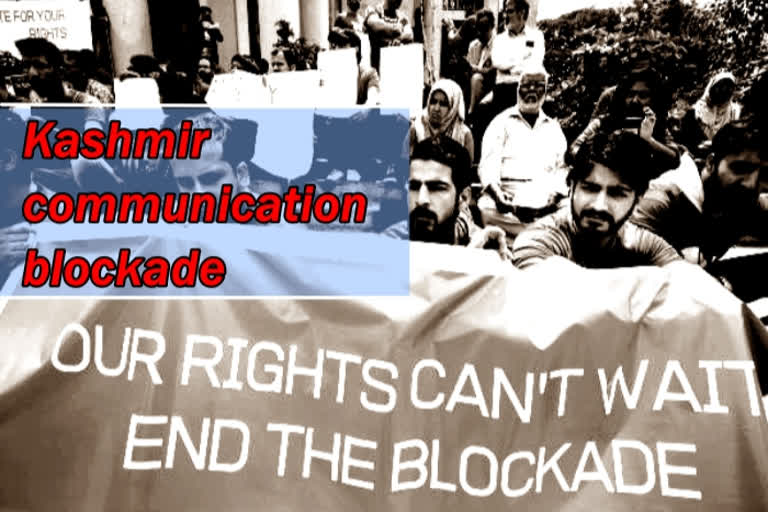New Delhi: As the Supreme court is hearing a bunch of petitions challenging the communication blockade in Kashmir after the modification of Article 370, Senior advocate Kapil Sibal, appearing for Ghulam Nabi Azad, argued that a state can not exercise its power if it can not perform its duty.
Sibal stated that it was in the thought of the government that riots will take place if Article 370 is modified, there were no such facts on which the decision was taken, it was just apprehensions.
"By your own act you have created a problem", Sibal added.
Read:| Orders for phone, internet services shutdown in J&K "illegal & unconstitutional", SC told
The Supreme court bench led by Justice NV Ramana enquired Sibal on what kind of material can such decision be taken, to which Sibal said that there are intelligence inputs, cross border terrorism threat based on which blockade should have been imposed.
"Sibal there can not be a doubt that there will be some problems in such situations. Some will suffer and there is no doubt to it", said Justice Subhash Reddy.
Sibal said that the bench should consider that it is the state's duty to protect the fundamental rights of the people. People have contracts, they have to supply goods and services, people have taken loans, there are farmers, orchard growers who are being affected by communication shut down added Sibal.
"You tried to protect me but you never protected me", remarked Sibal.
Explaining how the state could have performed its duty, Sibal said that Azad should have been allowed to go to Jammu and Kashmir and police could have escorted him. If the government had to take a step for 7 million people then it should have prepared for it.
Supreme Court hearing in the matter will continue on Friday.
Read:| Delhi: SC to hear plea challenging odd-even scheme tomorrow



